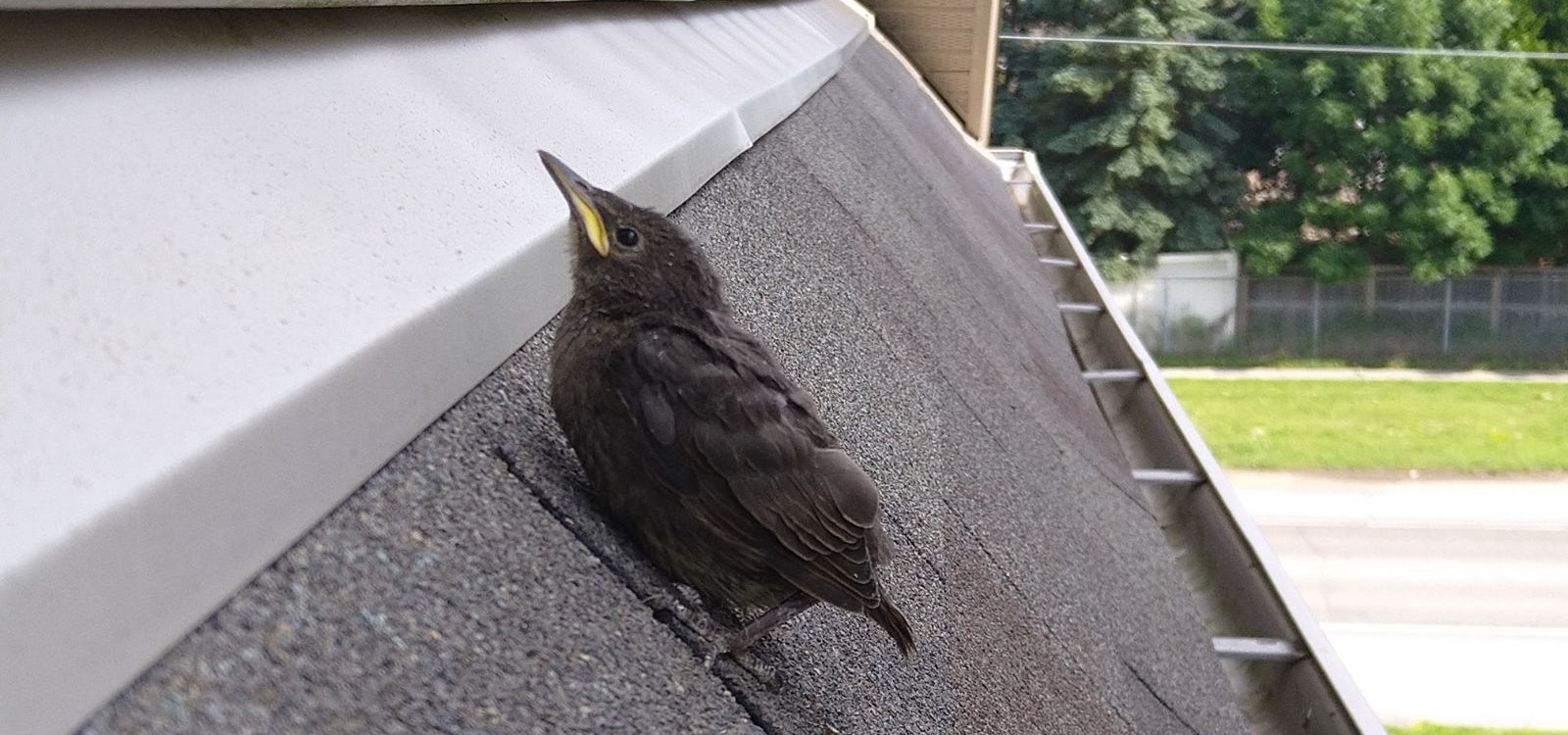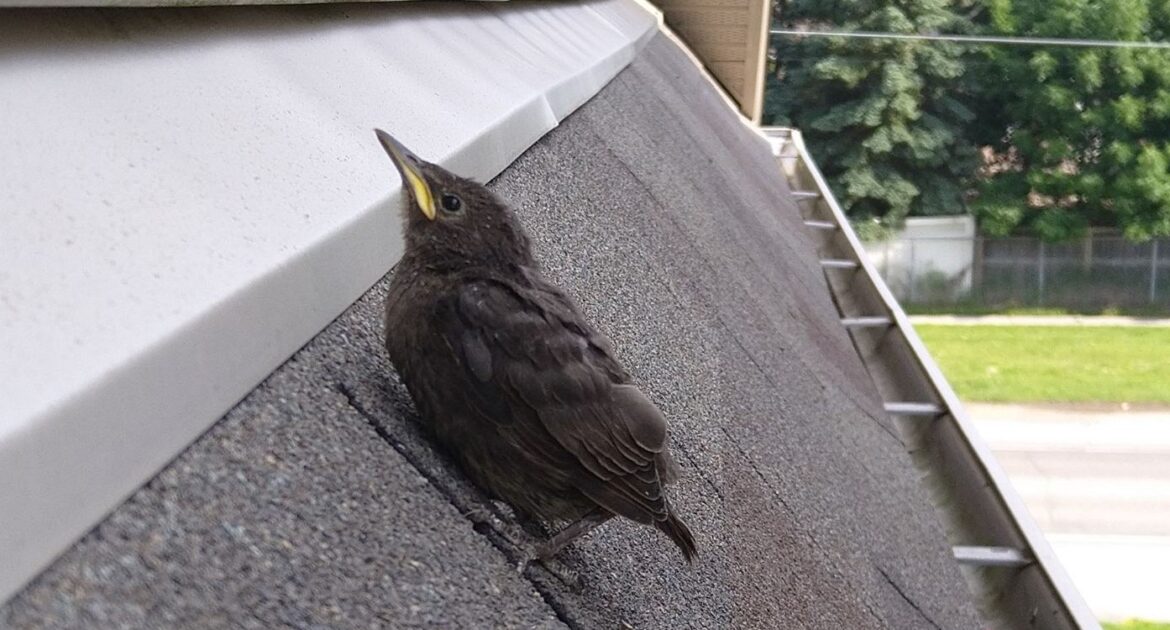Birds and pest control are rapidly gaining recognition in sustainable gardening practices across Minnesota. While many gardeners focus on traditional pest management methods involving chemicals and physical barriers, the natural role birds play in maintaining garden health offers a more balanced approach. This method not only manages pests effectively but also promotes broader ecosystem health around your Plymouth property.
Join us as our team discusses the role that local birds play in pest control and how to ensure they don’t get too close for comfort in your home.
Birds and Garden Pest Control
When it comes to managing garden pests, birds are among the most efficient allies for a gardener. Their natural hunting instincts and dietary needs position them as excellent partners in maintaining a healthy garden ecosystem.
Birds consume an impressive variety of pests daily. A single nesting pair, while raising their young, can consume up to 9,000 insects during a breeding season. This natural pest control mechanism operates continuously without any intervention required from gardeners.
The most common garden pests managed by birds include:
- Aphids that damage plant growth and spread diseases
- Caterpillars that feed on leaves and fruits
- Japanese beetles that skeletonize leaves
- Grasshoppers that can devastate crops
- Snails and slugs that damage tender plants
Different species target specific pests based on their feeding habits. For instance, warblers and chickadees expertly locate and consume small insects hidden in foliage, while larger species like robins excel at controlling ground-dwelling pests such as cutworms and grubs.
Birds provide economic value as their pest control services cut down the need for chemical pesticides, saving money while protecting beneficial insects and plants. Most importantly, birds offer selective pest control. Unlike broad-spectrum chemical treatments that eliminate beneficial insects along with pests, birds typically focus on the most abundant targets, aiding in maintaining a balanced ecosystem.
Beyond Pest Control: How Birds Help Gardens
The advantages of birds in garden pest management extend far beyond just eating insects. Birds contribute to garden health in multiple ways that many Plymouth homeowners might not realize.
Soil Health Improvement
Birds significantly enhance soil health through various mechanisms, such as natural soil aeration. As birds scratch and peck at the ground searching for insects, they aerate the top layer of soil, improving oxygen flow and water penetration. Additionally, droppings serve as a natural fertilizer rich in nitrogen, phosphorus, and other essential nutrients that plants need for healthy growth.
Birds also play an important role in seed dispersal, spreading seeds throughout gardens, promoting biodiversity, and assisting native plants in establishing themselves in new areas.
Regarding weed control, many seed-eating species, like finches and sparrows, consume thousands of weed seeds that would otherwise compete with garden plants for resources. A single finch can eat up to 1,000 weed seeds daily, which naturally complements your gardening efforts.
This natural approach to garden management is especially valuable in Plymouth’s diverse growing conditions, where maintaining ecological balance helps gardens thrive against Minnesota’s varied climate challenges.
Most Beneficial Bird Species for Plymouth Gardens
Not all species provide the same benefits to gardens in the Plymouth area. Knowing which species offer the most effective pest control can help you create a more bird-friendly environment.
Insect-Eating Specialists
Several bird species are particularly effective at controlling insect pests in Minnesota gardens:
- Black-capped Chickadees: Year-round residents of Plymouth that consume vast quantities of insects, including aphids, caterpillars, and beetles. They’re valuable for pest control even during Minnesota’s early spring and late fall.
- American Robins: Excelling in controlling soil-dwelling pests like grubs and earthworms, these birds are perfect for addressing lawn pest issues.
- Eastern Bluebirds: Specialists in catching insects on the wing or pouncing on them from perches, they effectively manage grasshoppers, beetles, and caterpillars.
- House Wrens: Despite their small size, they are voracious insect eaters, with a single wren family consuming up to 500 insects daily, focusing primarily on caterpillars, beetles, and flies.
Understanding these different species and their behavior allows Plymouth gardeners to create habitats that attract and support the most beneficial species for their specific pest control needs.
Creating a Bird-Friendly Garden in Plymouth
To maximize the benefits of birds in pest control, creating a nurturing environment for these allies is essential. The right approach not only attracts beneficial birds but also keeps them returning season after season.
Essential Elements of a Bird-Friendly Garden
Every bird-friendly garden should include four key components:
- Food sources: Native plants that produce seeds, berries, nectar, and attract insects provide a natural food source for various bird species. In Plymouth, consider planting serviceberry, dogwoods, and native viburnums.
- Water features: Birds require clean water for drinking and bathing. A simple birdbath, a small pond, or even a shallow dish at ground level offers essential water access. During Minnesota winters, consider heated bird baths to supply water when most natural sources are frozen.
- Shelter and nesting sites: Different bird species prefer different nesting environments. Provide a mix of dense shrubs, trees of varying heights, and nest boxes designed for specific species.
- Reduced pesticide use: Chemical pesticides can harm the very birds you’re trying to attract while eliminating their food sources. Minimizing or eliminating pesticide use creates a healthier environment for birds and the beneficial insects they need.
For Plymouth gardens specifically, native plants like purple coneflower, black-eyed Susan, and Joe-Pye weed not only attract birds but can endure local weather conditions while requiring less maintenance than non-native alternatives.
Incorporating these elements into your garden design will create an environment that naturally attracts birds while helping them thrive and maximizing their pest control benefits.
Balancing Bird Presence in Your Garden
While birds provide tremendous pest control benefits, their presence sometimes requires thoughtful management to prevent them from becoming nuisances themselves.
Managing Potential Bird Challenges
Birds can occasionally cause garden issues, particularly concerning certain fruits and vegetables. Consider protective measures for vulnerable crops. For cherries, strawberries, blueberries, and other fruits birds find irresistible, using physical barriers like netting during the ripening period can be beneficial. This allows birds to continue controlling insects while protecting your harvest.
Planting crops specifically for birds can divert their attention. Sacrificial crops or native fruiting plants can keep birds away from more valuable produce. Also, strategic timing, such as harvesting fruits slightly early, can reduce potential losses.
Many gardeners believe that any bird presence around fruits is harmful, but research indicates that many birds observed in fruit gardens are actually hunting for insects among the plants rather than eating the fruits themselves.
When birds become problematic around buildings or in undesirable locations, professional services like those from Skedaddle Minnesota provide humane bird management solutions that maintain the benefits of birds while addressing specific issues, ensuring both your garden and home remain protected.
Seasonal Considerations for Bird-Based Pest Control
The effectiveness of natural pest control by birds can vary with the seasons, making it vital for homeowners to adapt their strategies accordingly. By understanding the seasonal dynamics of both pest populations and bird behavior, gardeners can optimize their approaches to attract and support these beneficial allies throughout the year.
Enhancing your garden with bird-friendly elements is more than a seasonal task—it’s an investment in sustainable gardening. This approach doesn’t only protect your plants but also fosters a deeper connection with the natural environment. At Skedaddle Minnesota, we understand the intricacies of garden management and offer expert advice and services to create a harmonious balance between gardening demands and avian benefits.
If you find that balancing bird presence with your gardening needs is a challenge, or if specific bird species become problematic, Skedaddle Minnesota is here to help. Contact us today for professional and humane bird management solutions tailored to your garden’s unique ecosystem needs. Transform your Plymouth garden into a thriving ecosystem with the help of nature’s best pest controllers.




